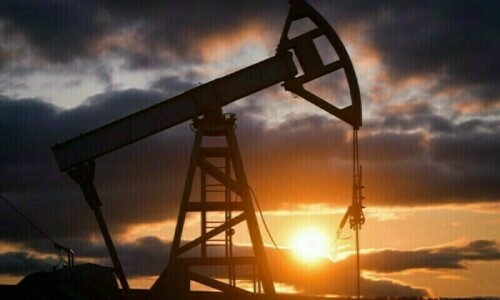FRANKFURT, Feb 11: Annual inflation hit a near five-year low in Germany, data released by the national statistics service showed on Wednesday, but energy costs bumped higher on the month, suggesting that consumer prices could remain volatile this year. Inflation in the biggest European economy fell to 0.9 per cent in January, its lowest level since February 2004, from 1.1 per cent the previous month, data released by the Destatis service showed. The decline was due mainly to lower prices for fuel and heating oil, and confirmed a provisional estimate released by Destatis in late January.
Mineral oil product prices plunged by 15.4 per cent on a 12-month basis, without which overall inflation would have come to 1.8 per cent, Destatis said.
But energy products in general gained 2.3 per cent in January from December, the statistics service also noted, including a 2.2 per cent jump in the cost of motor fuel.
Electricity cost 3.2 per cent more than in the previous month, and food prices also gained slightly on an annual basis, suggesting that inflation might resist a downward spiral more than some economists expect.
Last week, European Central Bank president Jean-Claude Trichet said the ECB expected inflation to rise again in the second half of the year.
In the meantime, “inflation rates will fluctuate sharply,” Trichet added, something the bank felt was “not relevant” when it determined the level of interest rates that set benchmarks for borrowing in the 16-nation eurozone.
In 2008, German inflation hit a 14-year high point of 2.6 per cent, owing mainly to a spike in the cost of energy and food.
Oil prices have plummeted since, owing in part to recessions in Germany and other global economic powerhouses. Prices for many consumer items such as computers and televisions have declined, as have the cost of some services, such as communications.
In January, inflation for the eurozone as a whole declined to 1.1 per cent, near a 10-year low, raising concerns that the bloc might have to battle deflation later this year.—AFP













































Dear visitor, the comments section is undergoing an overhaul and will return soon.